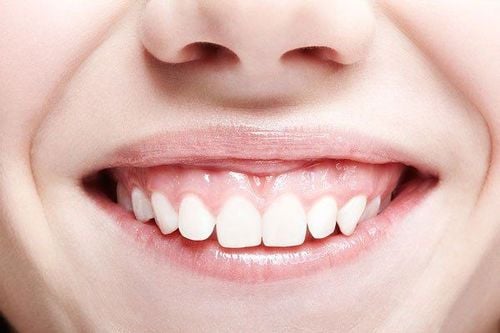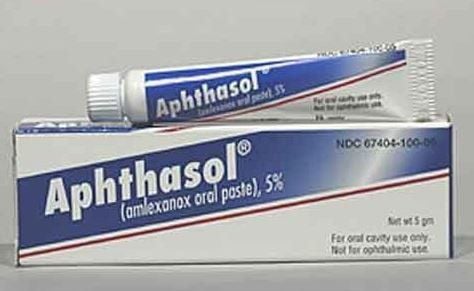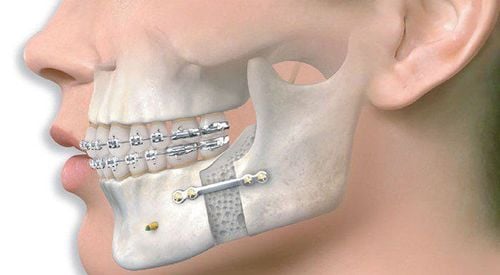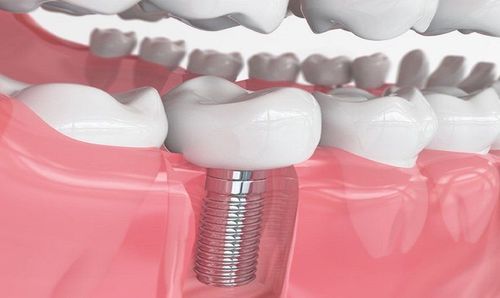This is an automatically translated article.
Cleft gums are a common problem in adult teeth. This condition will make teeth weaker, there is a risk of early tooth loss as well as loss of aesthetics for teeth, especially affecting oral health in general.
1. What is a root canal?
People with gum recession (also known as receding gums) is a condition in which the gum tissue around the tooth roots wears away, or pulls back from the tooth surface, leaving the root surface exposed. We can easily recognize the condition of the gums and teeth through the basic and visible symptoms such as:
Exposed dentin, teeth longer than normal. Constantly getting food stuck in the teeth causing discomfort; Bleeding gums when cleaning with a brush, toothpick or floss; Bad breath; Formation of inflammatory foci causing bleeding, festering, red swelling in gums, and tooth roots; Hot and cold food can cause toothache...
2. Causes of tooth decay
Dentists say there are many causes of gum disease. Some of the main causes can be listed as follows:
Genetics: A family history of oral problems will be partly inherited to the next generation if not followed-up care and treatment properly and on time. Cleft gums also have genetic factors from family members. Bad living habits: Daily living habits such as brushing teeth too hard, in the wrong way, without proper hygiene, to accumulate too much tartar causing gingivitis, open gums. Regular smoking and teeth grinding are also causes of receding gums. Due to other oral diseases: Tooth decay, bleeding gums, gingivitis, gingivitis, bad breath, tartar, yellow teeth... are all potential long-term causes leading to open gums, if not treated. Hormonal changes in women: During periods such as puberty, pregnancy, and menopause, women's gums are also one of the causes of receding gums. The causes come from the locality: The teeth are out of the arch, trauma to the bite... also cause the condition of the teeth to be exposed.

Bị hở lợi có thể do di truyền
3. Is it dangerous to have open gums and teeth?
Most of us ignore this oral condition or do not solve the problem leading to dangerous consequences for our teeth. If not properly treated, gum recession can lead to early permanent tooth loss. In addition, in eating and drinking daily activities, the situation of receding gums will cause food to be often stuck between the teeth, revealing the plaque at the roots. When cleaning is not clean, the teeth become weaker day by day, easily sensitive when eating hot and cold.
Open tooth roots create conditions for gingivitis, periodontitis to develop and become severe. This condition is not treated in time, leading to erosion and tooth loss.
The most obvious is the loss of aesthetics, exposing the roots of the teeth, causing the teeth to lengthen because the gums are pulled down close to the tooth roots, exposing the dentin. The state of exposed gums and teeth causes low self-esteem and fear when communicating, affecting long-term quality of life.
4. Treatment of gingival root canal
For people with gum disease, for effective treatment, it is necessary to have a dental examination to determine the specific condition. Patients are examined by a dentist in detail, taking X-rays of the teeth, indicating whether the gum recession is mild or severe and having the most appropriate and effective treatment plan.
Usually for people with mild gum disease, patients will be advised to self-treat by changing their daily oral care habits. Specifically, it is necessary to use a soft-bristled brush to avoid damage to the gums and gums, and to learn how to brush properly. Besides, it is necessary to clean teeth, remove plaque, rinse mouth, take tartar periodically, use toothpaste containing anti-sensitizer.
When the condition of the gums and teeth is severe and the symptoms are uncomfortable, the patient will be advised to treat in different ways that are suitable and effective. The dentist will perform specific treatment such as:
Removal of denture pockets, reducing the size of the pockets, curettage of periodontal pockets for people with receding gums due to periodontitis. The dentist cleans the harmful bacteria from the gingivitis foci, then sutures the gum tissue in place on the root of the tooth. Bone grafting is used when the supporting bone tissue of the patient is destroyed. Depending on the condition, the doctor will choose the type of graft that is compatible with the patient's body. Gum tissue grafting aims to restore the normal shape of the gums, preventing further gum recession.

Bị hở lợi chân răng có nhiều phương pháp điều trị tùy thuộc vào tình trạng của người bệnh
5. How to prevent gum disease?
In fact, preventing gum disease is quite simple, with daily measures to prevent severe manifestations and progression. Dentists said that we can actively prevent disease by:
Thorough and proper oral hygiene, brushing 2 times a day, using a soft bristle brush, with mouthwash to thoroughly remove bacteria. bacteria, clean teeth even where the brush cannot reach in the oral cavity. Give up bad habits such as smoking, eating too hot, too cold, too sour... Get tartar periodically every 6 months - 1 year / time depending on the situation, visit the dentist regularly at least 6 months / time Have problems Oral health problems should not be subjective, need to be treated properly and thoroughly. Dental examination at Vinmec International General Hospital is the optimal choice for customers with oral problems in general and gum disease in particular. At Vinmec International General Hospital, all dental services are performed according to strict infection control standards, ensuring maximum safety and hygiene for customers. Highly qualified doctors who successfully treat oral diseases from simple to complex will help patients overcome receding gums effectively.
Please dial HOTLINE for more information or register for an appointment HERE. Download MyVinmec app to make appointments faster and to manage your bookings easily.













